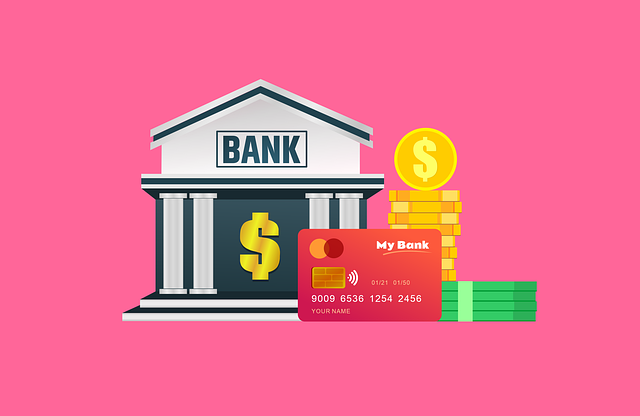Unsecured consolidation loans offer homeowners with bad credit a solution to manage multiple high-interest debts by combining them into one single loan at potentially lower rates, saving money and simplifying repayment. While requiring no collateral, these loans depend on income and debt-to-income ratio for approval. By improving their credit score through timely payments and dispute resolution, borrowers can access better terms, enhancing their financial standing.
Struggling with multiple debts and a low credit score? Bad credit debt consolidation loans could be a solution for homeowners seeking financial relief. This article explores unsecured consolidation loans, their benefits, and how they can help those with poor credit scores. We’ll guide you through the process, from understanding loan options to improving your credit standing before applying. Learn about the eligibility criteria and take control of your finances today.
- Understanding Bad Credit Debt Consolidation Loans
- Unsecured Consolidation Loans: How They Work
- Benefits of Consolidating Debt for Homeowners
- Eligibility Criteria for Low Credit Scores
- Strategies to Improve Your Credit Score Before Applying
Understanding Bad Credit Debt Consolidation Loans
Bad credit debt consolidation loans are designed to help homeowners with low credit scores manage their debts more effectively. These unsecured consolidation loans allow borrowers to combine multiple high-interest debts into a single, more manageable loan with a lower interest rate. By doing so, homeowners can simplify their financial obligations and potentially save money on interest charges.
Unsecured consolidation loans offer an attractive option for those with bad credit since they do not require collateral. This makes them a riskier proposition for lenders, which may result in higher interest rates and less favorable terms compared to secured loans. However, for homeowners determined to improve their financial situation, these loans can be a valuable tool to gain control over their debts and work towards rebuilding their credit scores.
Unsecured Consolidation Loans: How They Work
Unsecured consolidation loans are a popular option for homeowners looking to manage their debt, even with less-than-perfect credit scores. Unlike secured loans that require collateral, unsecured loans offer a more flexible approach as they are not backed by any assets. This type of loan consolidates multiple high-interest debts into one single loan with a potentially lower interest rate, making it easier for borrowers to keep track of their payments.
The process involves applying for the consolidation loan from various lenders who will assess your creditworthiness based on factors like your income and debt-to-income ratio. If approved, the funds are used to pay off existing debts, simplifying your financial obligations and potentially saving you money in interest charges over time.
Benefits of Consolidating Debt for Homeowners
Debt consolidation can be a powerful tool for homeowners with low credit scores looking to improve their financial situation. By combining multiple debts into a single loan, borrowers can simplify their repayment process and potentially reduce their overall interest expenses. This is especially beneficial for those dealing with high-interest credit card debt or various loans with different terms, as consolidation allows for easier management and the possibility of lower monthly payments.
Unsecured Consolidation Loans offer an attractive option for homeowners who may not have the best credit history. These loans do not require collateral, making them a risk-free alternative. Homeowners can use the consolidated loan to pay off existing debts, freeing up extra cash flow each month and providing the opportunity to rebuild their credit score over time. Consolidation also streamlines repayment, as borrowers only need to make one monthly payment, simplifying budgeting and financial planning.
Eligibility Criteria for Low Credit Scores
When considering Bad Credit Debt Consolidation Loans for Homeowners, one of the primary concerns is eligibility, especially for those with low credit scores. Lenders typically look at several factors before approving a loan. For unsecured consolidation loans, the criteria can be more flexible compared to secured loans. Generally, lenders will assess your credit history and score, debt-to-income ratio, and ability to make consistent repayments. Credit scores below 580 may face challenges in securing these types of loans from traditional financial institutions.
However, alternative lenders and specialized programs often have less stringent requirements. They might offer unsecured consolidation loans to homeowners with low credit scores as long as they demonstrate a steady income and can provide proof of property ownership. It’s important for borrowers to shop around and compare offers to find the best terms tailored to their financial situation.
Strategies to Improve Your Credit Score Before Applying
Before applying for a bad credit debt consolidation loan, it’s wise to take proactive steps to improve your credit score. One effective strategy is to obtain an unsecured consolidation loan, which can help rebuild your financial reputation. These loans offer flexibility and lower interest rates compared to secured options, making them an attractive choice for homeowners looking to consolidate their debts.
Additionally, regularly reviewing your credit report is crucial. Check for errors or discrepancies and dispute any inaccurate information with the credit bureaus. Paying bills on time, keeping credit card balances low, and avoiding new applications for credit within a short period can also significantly impact your score. These simple yet effective strategies can enhance your chances of securing more favorable loan terms when it comes to debt consolidation.
For homeowners struggling with debt and a low credit score, unsecured consolidation loans can offer a viable solution. By combining multiple high-interest debts into one manageable loan, these loans provide much-needed relief from overwhelming monthly payments. This article has explored the fundamentals of bad credit debt consolidation, the benefits it offers, and crucial eligibility criteria. Before applying, it’s essential to employ strategies that can improve your credit score, ensuring better terms and rates. With careful consideration and proactive steps, homeowners can navigate this path toward financial stability.
